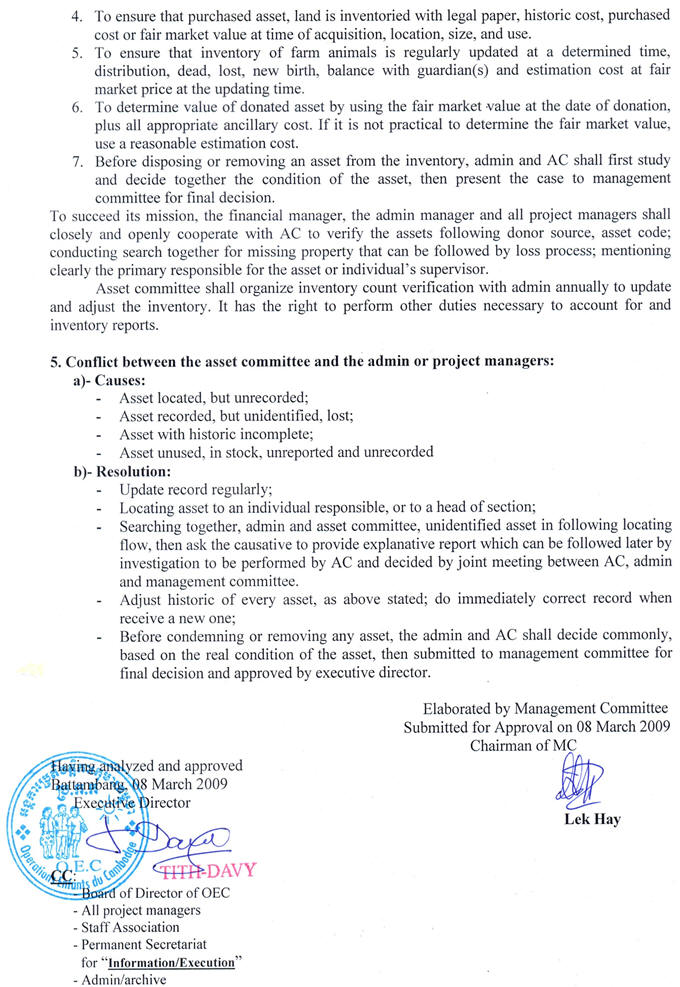| Reference:
- Paragraph 2 and 3 of the Code
of Ethical Principles and Conduct
- General measure to prevent conflict of interest
from appearing
1. Definition
An asset, in a large meaning, can include
anything that provides economic value to an
organization. An asset might be obvious - such as
cash, stocks and accounts receivable or real estate.
An asset could be something harder to measure - such
as inventory, or office equipment. An asset might
also be the good name and reputation of the
organization. An asset such as the daily operation
activities of the organization and work in progress
might contribute to positive result that heightens
value as well. The term asset covers a broad range
of both tangible and intangible items. In short,
anything that is owned by organization, whether
visible or not, which has the possibility to provide
honor, popularity and prestige is called an asset.
Recognizing the above definition, in considering
the principles in reference and the practical way
aiming at saving democratic governance, preventing
conflict of interest and succeeding the mission of
the organization, the term asset here considered
covers only tangible asset, that means cash,
accounts receivable, estate, farm animals, office
equipment and vehicles.
2. Composition of Asset Committee (AC)
The Asset Committee is comprised of:
- One representative selected by management
committee, chairman.
- One representative selected by Staff
Association, member.
- One representative selected by finance
section, or admin, member.
After selection, decision accepted by the
management committee, admin has to write an
appointment note signed by executive director with
communication to Board of directors, all projects,
sections and staff association for information and
cooperation.
3. Mandate of the Asset Committee
The mandate of the asset committee is three years
renewable, evaluated by the management committee.
Every member may request for resignation, based on
his/her fundamental reason, and then a replacement
will be done.
 |


